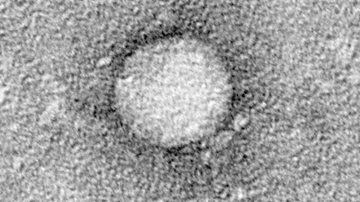Outstanding hepatitis research: DZIF Professor receives honorary doctorate
Honorary doctorate ceremony in Basel (from left): Prof. Dr Primo Leo Schär, Dean of the Faculty of Medicine at the University of Basel, Prof. Dr Stephan Urban, DZIF Professor of Translational Virology at the Heidelberg University Hospital and Prof. Dr Dr h.c. mult. Andrea Schenker-Wicki, Rector of the University of Basel.
The Faculty of Medicine at the University of Basel has awarded an honorary doctorate to DZIF Professor Dr Stephan Urban from the Medical Faculty at the Heidelberg University. The award acknowledges the significant development of the first drug for chronic hepatitis D from basic research to medical application.
Stephan Urban, DZIF Professor of Translational Virology at the Heidelberg University Hospital (UKHD), received the honorary doctorate of the Faculty of Medicine at the University of Basel on 24 November. Professor Primo L. Schär, Dean of the Basel Faculty of Medicine, described Professor Urban's research as “one of the most significant developments in hepatitis research in recent decades".
From basic research to an effective drug
Stephan Urban looks back on 25 years of intensive research: A drug he developed is now helping patients with hepatitis D. As a basic researcher, Urban originally intended to understand the molecular mechanisms of hepatitis B virus (HBV) and hepatitis D virus (HDV) infections. During his research, he discovered that a protein fragment from the viral envelope binds to a receptor on the liver cell that was unknown at that time. Stephan Urban and his team succeeded in synthesising parts of the envelope protein in the laboratory and using them to block the viral receptor. This prevented the hepatitis viruses HBV and HDV from entering the cell.
Studies in animal models confirmed this approach as a possible way to develop a therapeutic. At the end of July 2020, the active compound Bulevirtide was approved in Europe under the name Hepcludex as the first drug for the treatment of chronic HDV infection, initially on a conditional basis and since 2023 permanently. It effectively inhibits the replication of the hepatitis D virus and significantly improves liver function. The results of ongoing studies will determine whether continuous treatment is needed or whether the drug, possibly in combination with other agents, has curative potential. The clinical development of Bulevirtide/Hepcludex is an example of a successful collaboration between academic research and the biotech start-up company Myr GmbH, which ultimately led to its acquisition and global commercialisation by the pharmaceutical company Gilead.




